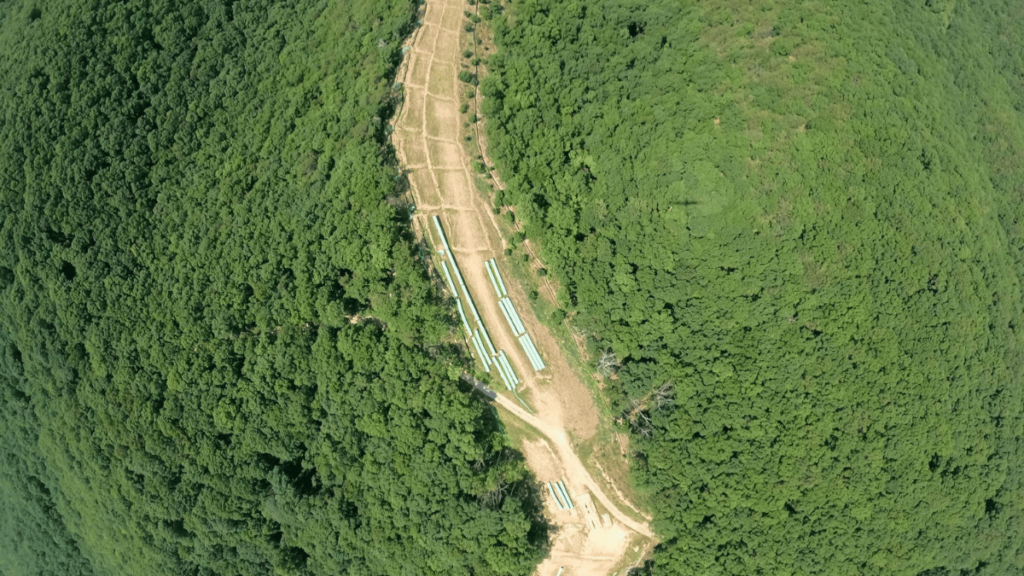One of the banks barred from state contracts by the Treasurer’s Office is financing the Mountain Valley Pipeline.
In 2022, following the enactment of Senate Bill 262, Treasurer Riley Moore issued the first list of “restricted financial institutions” he determined were not friendly to fossil fuels.
One of those was BlackRock. Moore accused the firm of putting China’s interests over West Virginia’s and encouraging companies to move away from coal, oil and natural gas.
“Any company that thinks Communist China is a better investment than West Virginia energy or American capitalism clearly has a bad strategy,” Moore said in 2022. “We will continue to give our state’s business to people who aren’t simultaneously trying to destroy our economy.”
Two years later, BlackRock is still on the list.
“It’s one of the largest shareholders of publicly traded fossil fuel companies on the planet,” said Ben Cushing, director of the Sierra Club’s Fossil Free Finance campaign.
A report earlier this month from the Sierra Club shows that in 2022 and 2023, BlackRock bought more than $45 million in bonds issued by EQT Corporation.
Not only is EQT one of the largest gas producers in Appalachia, it also is poised to be the biggest user of the Mountain Valley Pipeline.
Once the pipeline becomes operational this year, EQT plans to use it to ship 1.2 billion cubic feet of gas per day 303 miles from north central West Virginia to southern Virginia. That’s two-thirds of the pipeline’s total capacity.
Environmental groups and landowners have long opposed the pipeline. The state’s leading elected officials have been its biggest champions.
Cushing said BlackRock’s earlier public commitments to address climate change may have made it a target.
“Lots of speculation, I suppose as to why they’ve been particularly attacked, I think, because they are the biggest and one of the best well, well known and that they have at least nominally stated their commitment to climate action, has put them in the crosshairs of this climate denial movement,” he said. “But the fact remains that many of those commitments have not actually been implemented, and they continue to be one of the largest investors in fossil fuels in the world.”
Five banks are on the original list. Moore sent letters this week to six more. They have 45 days to prove they’re not boycotting fossil fuels, or they will be added to the list.
Jared Hunt, a Treasury spokesman, said SB 262 allows any company to petition the Treasurer to be removed from the list. None has asked to be removed, Hunt said.




















